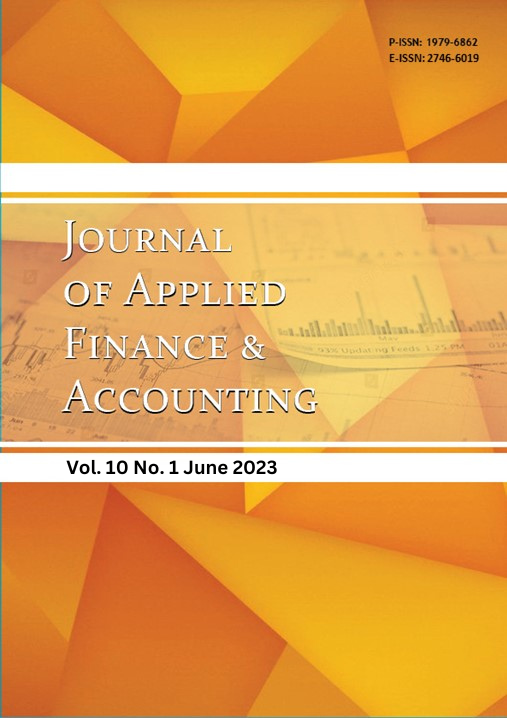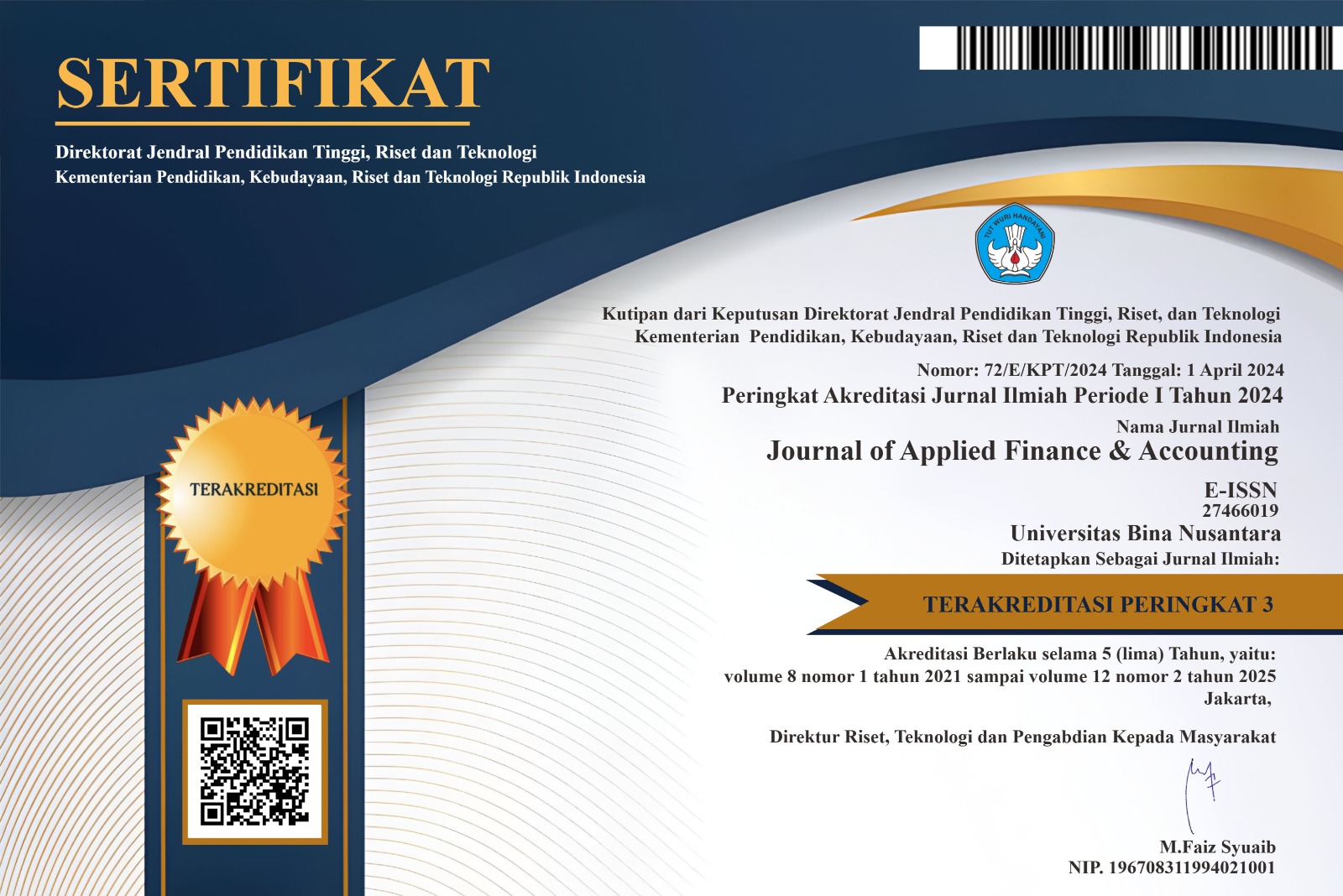THE IMPACT OF BIG DATA ON FINANCIAL REPORTING
DOI:
https://doi.org/10.21512/jafa.v10i1.9004Keywords:
Big Data, Financial Reporting, Financial Report Quality, Information QualityAbstract
Big data analytics can influence financial accounting by collecting, recording, and managing data and preparing financial reports. Big data provides convenience and speed of access to transaction data streams. By using big data, accountants in an organization can access transaction information more quickly and can work on large-scale transactions. This study aims to examine the influence of big data on financial reporting with Quantitative Evidence from Indonesia. This research uses quantitative methods. The data used in this study are primary data obtained from the study subject in the form of a questionnaire. The data obtained is processed using SPSS 25. The results of the hypothesis test stated that the analysis of big data has an effect on the quality of the report. This means big data technology as a resource internally owned company can improve the company's financial performance.
References
A. De Mauri, M. Greco and M. Grimaldi, "What is big data? A consensual definition and a review of key research topics," AIP Conference Proceedings, 2015.
A. De Mauro, M. Greco and M. Grimaldi, "What is big data? A consensual definition and a review of key research topics," AIP Conference Proceedings, 2015.
A. E. A. Ibrahim, A. A. Elamer and A. N. Ezat, "The convergence of big data and accounting: innovative," Technological Forecasting and Social Change, vol. 173, p. 121171, 2021.
B. Gerald, "A Brief Review of Independent, Dependent and One Sample t-test," International Journal of Applied Mathematics and Theoretical Physics, vol. 4, no. 2, p. 50, 2018.
D. J. Janvrin and M. Weidenmier Watson, ""Big Data": A new twist to accounting," Journal of Accounting Education, vol. 38, pp. 3-8, 2017.
D. J. Janvrin and M. Weindenmier Watson, ""Big Data": A new twist to accounting," Journal of Accounting Education, vol. 38, pp. 3-8, 2017.
I. Kaya and D. h. Akbulut, "Big data analytics in financial reporting and accounting," Pressacademia, vol. 7, no. 1, pp. 256-259, 2018.
J. Basukie, Y. Wang and S. Li, "Big data governance and algorithmic management in sharing economy platforms: A case of ridesharing in emerging markets," Technological Forecasting and Social Change, vol. 161, p. 120310, 2020.
J. D. Warren, K.C. Moffitt and P. Byrnes, "How Big Data Will Change Accounting," Accounting Horizons, vol. 29, no. 2, pp. 397-407, 2015.
K. Al-Htaybat and L. von Alberti-Alhtaybat, "Big Data and corporate reporting: impacts and paradoxes," Accounting, Auditing & Accountability Journal, vol. 30, no. 4, pp. 850-873, 2017.
M. Pejić Bach, Ž. Krstić, S. Seljan and L. Turulja, "Text Mining for Big Data Analysis in Financial Sector: A Literature Review," Sustainability, vol. 11, no. 5, p. 1277, 2019.
N.M. Marie Younis, "THE IMPACT OF BIG DATA ANALYTICS ON IMPROVING FINANCIAL REPORTING QUALITY," International Journal of Economics, Business and Accounting Research (IJEBAR), vol. 4, no. 03, 2020.
O.M. Zragat, "The Moderating Role of Business Intelligence in the Impact of Big," Modern Applied Science, vol. 14, no. 2, p. 71, 2020.
S. Boubaker, Z. Liu and Z. Ling, "Big data, news diversity and financial market crash," Technological Forecasting and Social Change, vol. 168, p. 120755, 2021.
S. K. Herath and N. Albarqi, "Financial Reporting Quality: A Literature Review," International Journal of Business Management and Commerce, vol. 2, no. 2, pp. 1-15, 2017.
Downloads
Published
Issue
Section
License
Authors who publish with this journal agree to the following terms:
Authors retain copyright and grant the journal right of first publication with the work simultaneously licensed under a Creative Commons Attribution License that allows others to share the work with an acknowledgement of the work's authorship and initial publication in this journal.
Authors are able to enter into separate, additional contractual arrangements for the non-exclusive distribution of the journal's published version of the work (e.g., post it to an institutional repository or publish it in a book), with an acknowledgement of its initial publication in this journal.
Authors are permitted and encouraged to post their work online (e.g., in institutional repositories or on their website) prior to and during the submission process, as it can lead to productive exchanges, as well as earlier and greater citation of published work (See The Effect of Open Access).





